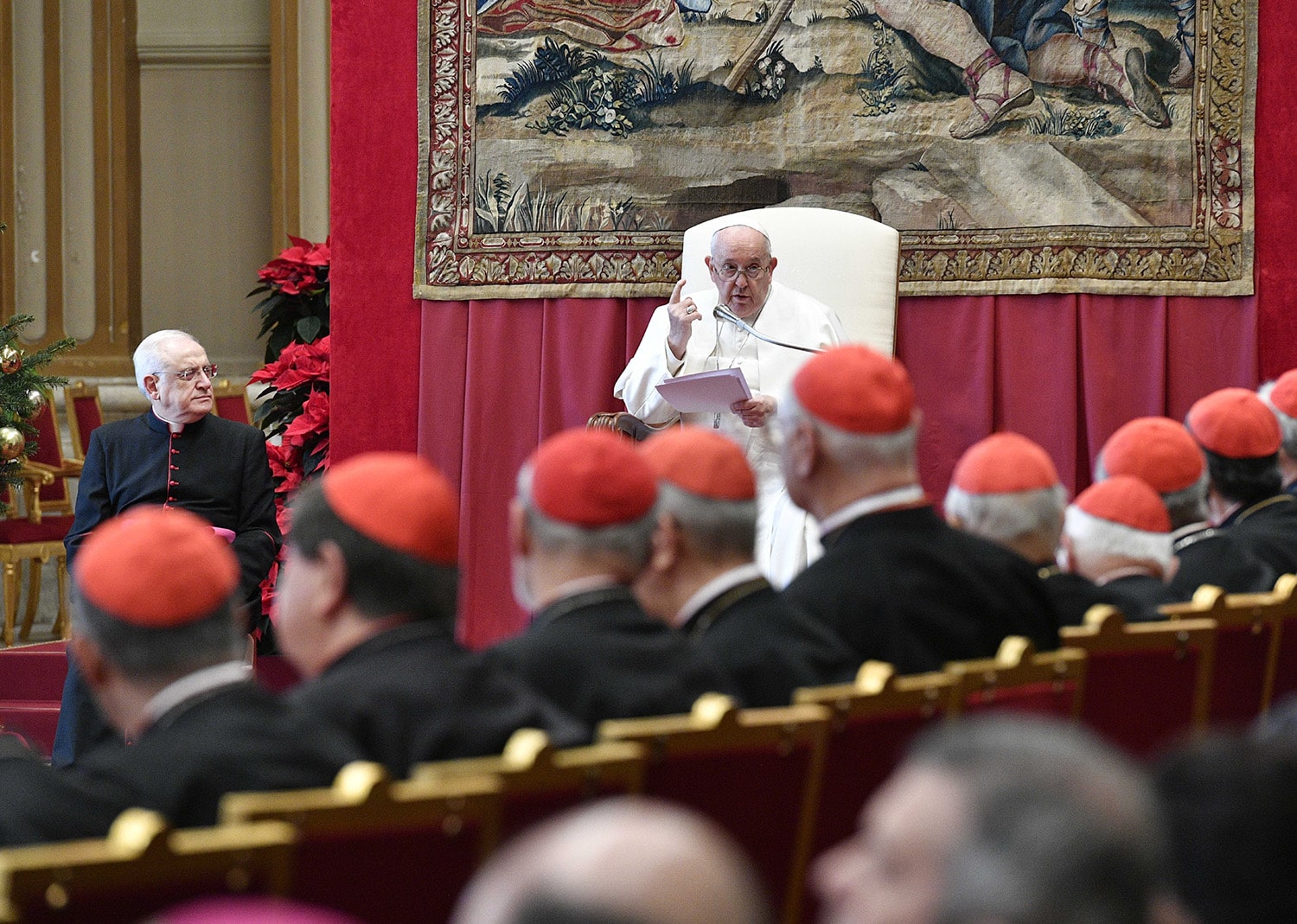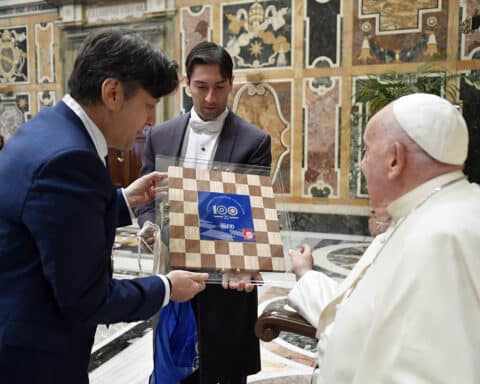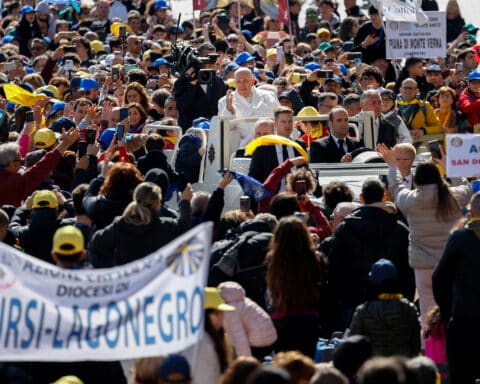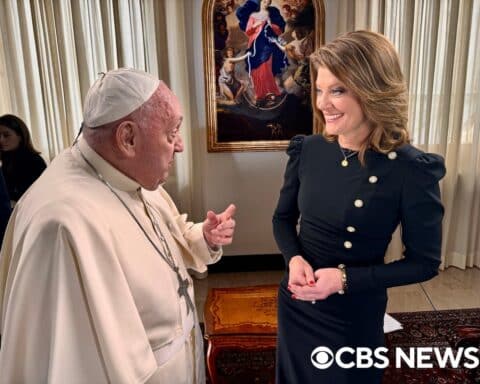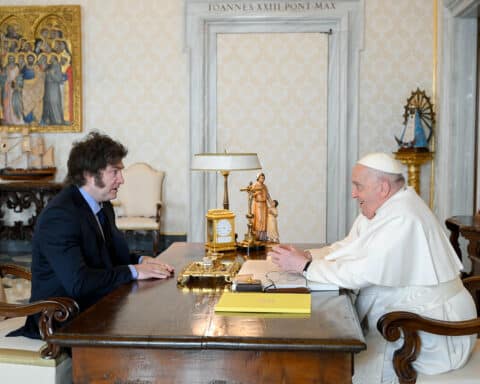VATICAN CITY (CNS) — Officials of the Roman Curia must learn how to really listen to others, not treating a discussion as a game of “ping pong” where everything another says is met with a speedy and automatic response, Pope Francis said.
“Sometimes, even when speaking among ourselves, we risk being like hungry wolves: we can devour the other person’s words without really listening to them and then shape them to fit our own ideas and judgments,” the pope said Dec. 21 during a meeting with the cardinals, archbishops, bishops, monsignors, priests, religious sisters and laypeople who lead Vatican offices.
Pope Francis has made the annual pre-Christmas meeting less a review of the past year in the life of the Church — as it was in previous pontificates — and more of a reflection on the spiritual and human attitudes that should mark service in the Roman Curia.
In fact, it was 89-year-old Cardinal Giovanni Battista Re, dean of the College of Cardinals, who began the meeting with a look back at pope’s repeated pleas for peace in 2023, his five foreign trips, the assembly of the Synod of Bishops on synodality and the documents published by the pope during the year.
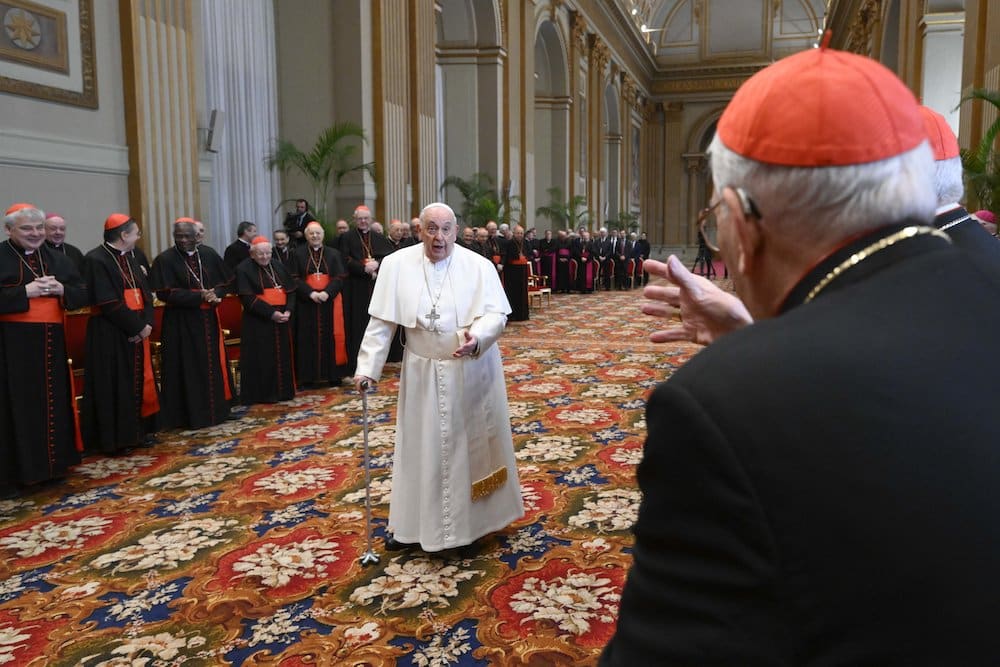
Listen to the Holy Spirit
Pope Francis ended his speech with a prayer: “May the Lord Jesus, the Word Incarnate, grant us the grace to rejoice in humble and generous service. Please, may we never lose our sense of humor, which is health!”
Perhaps most surprisingly, the pope did not use the word “synodality” in his speech despite the current global process of reflection on how to become a more “synodal” church where members listen to one another, recognize each other’s gifts and share responsibility for the mission of the Church to preach the Gospel.
Early in his pontificate his speeches to the Curia were known for their admonishing tone, but this year’s speech couched warnings about ideology and rigidity in the more positive light of attitudes that promote listening, discernment and moving forward in faith.
Sixty years after the Second Vatican Council, he said, some people are “still debating the division between ‘progressives’ and ‘conservatives'” within the Catholic Church, but the only difference that counts is between those on fire with love for the Lord and those “who have lost that initial passion.”
Passion for the Lord and for the mission of sharing the Gospel, he said, must not be confused with insisting on a fixed set of rules or doing things the way they always have been done, because people change, the world changes and the Holy Spirit inspires appropriate and sometimes creative responses.
The first step, he said, always is to listen in silence, to think about what was said, pray about it and only then offer a response.
“There is no better way to listen than ‘on our knees,’ since this means not thinking, in our pride, that we already know or have understood what others are about to tell us,” the pope said. Instead, it shows that one is “open to the mystery of the other, ready to receive with humility what he or she wants to tell us.”
The next step is to learn discernment, which is “an art of the spiritual life,” the pope said. “It can strip us of the illusion of omniscience, from the danger of thinking that it is enough simply to apply rules, from the temptation to carry on — including in the life of the Curia — by simply repeating what we have always done.”
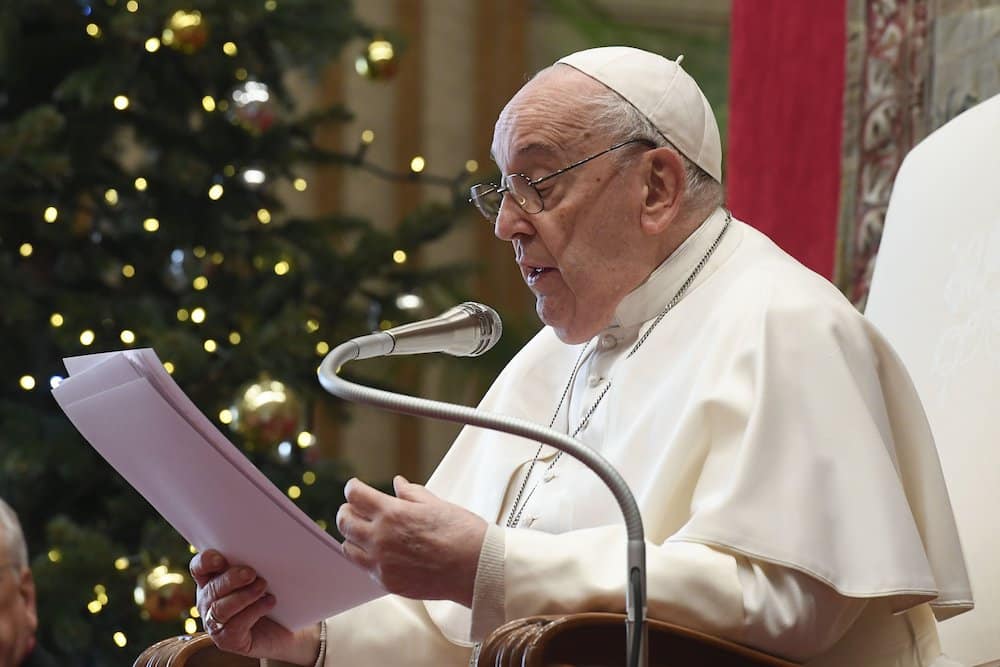
Christian faith is a journey
Insisting on doing things the way they have been done in the past is a failure “to realize that the mystery of God is always beyond us and that the lives of people and the world around us are, and will always remain, superior to ideas and theories,” the pope said.
The third point Pope Francis made was that Jesus’ disciples are called to set off on a journey.
“The Christian faith, let us remember, is not meant to confirm our sense of security, to let us settle into comfortable religious certitudes and to offer us quick answers to life’s complex problems,” he said. Instead, Jesus “sends us on a journey, draws us out of our comfort zones (and) our complacency about what we have already done.”
“Fear, rigidity and monotony make for an immobility that has the apparent advantage of not creating problems — ‘stay put, don’t move’ — but lead us to wander aimlessly within our labyrinths to the detriment of the service we are called to offer the church and the whole world,” the pope said.
The journey of faith and service in the Curia or anywhere else, he said, begins with a call from the Lord.
“So, whenever the service we offer risks becoming dull, enclosed in the labyrinth of rigidity or mediocrity, whenever we find ourselves entangled in the web of bureaucracy and content ‘just to get by,'” Pope Francis said, “let us always remember to look up, to start afresh from God, to be enlightened by his word and to find the courage needed to start anew.”

